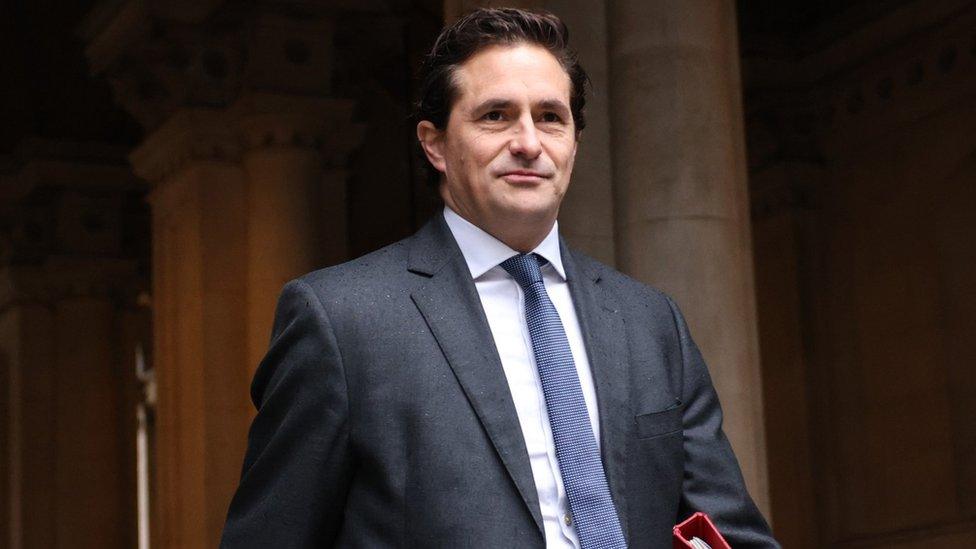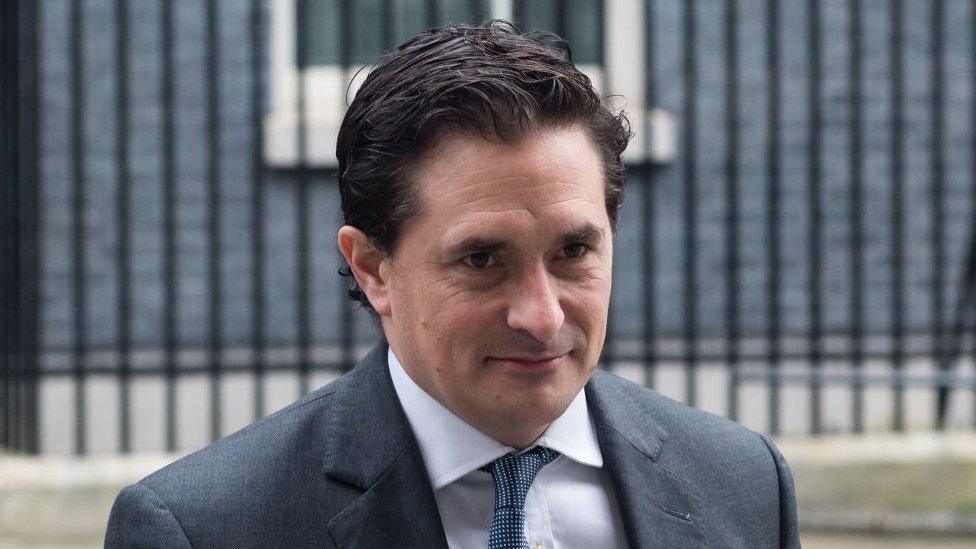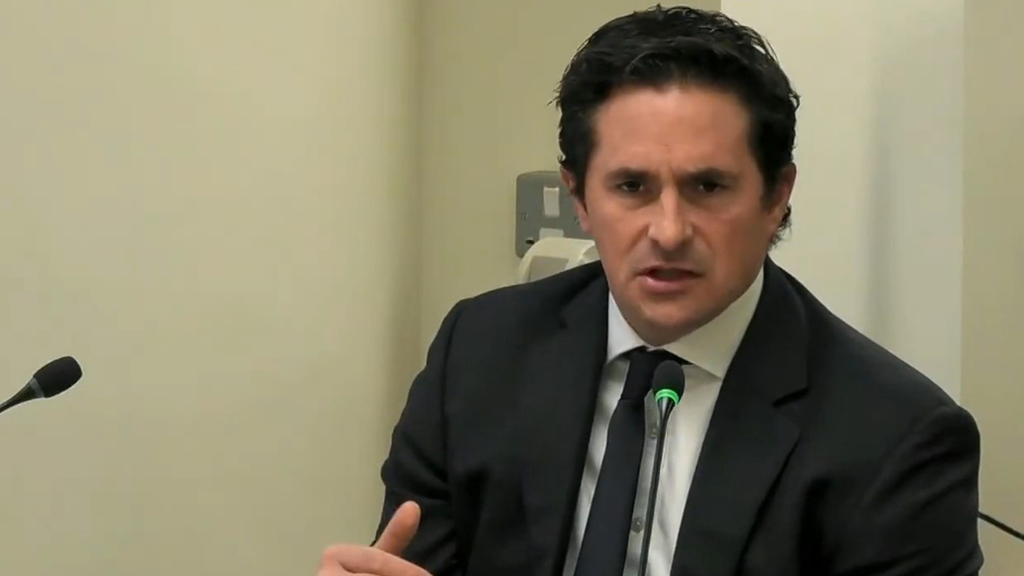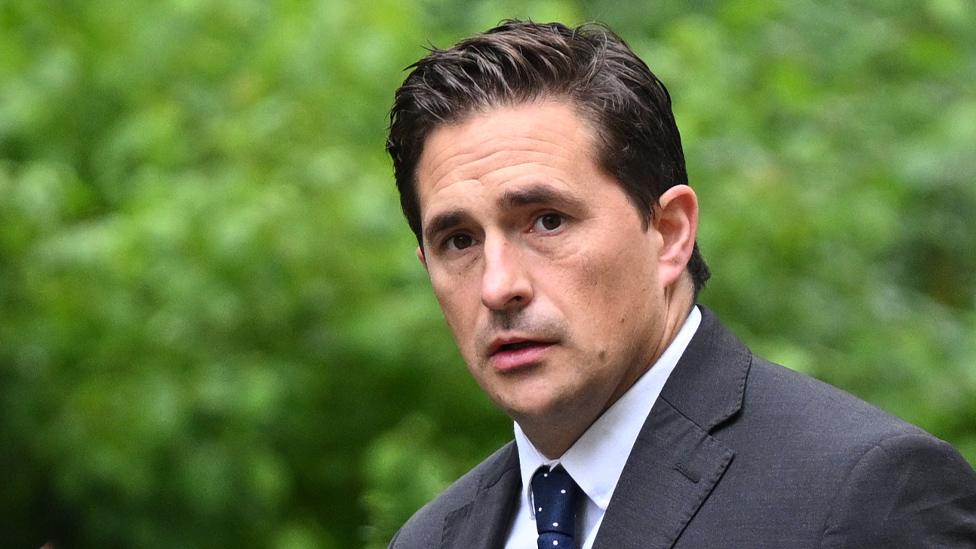Johnny Mercer given deadline to challenge order to hand over names to Afghan inquiry
- Published

Veterans' Minister Johnny Mercer has been given until 8 May to argue why he should not have to name people who told him about alleged war crimes in Afghanistan by British special forces.
The MP was previously told to provide names to the Afghanistan Inquiry by 5 April or he could face a jail sentence.
The deadline has now been extended while the inquiry considers Mr Mercer's challenge to the order.
He previously argued that protecting his sources was a matter of integrity.
The veterans' minister now has until 4pm on 8 May to make any further submissions or evidence, inquiry chairman Sir Charles Haddon-Cave has ordered.
During Mr Mercer's evidence in March, the MP was accused of refusing to answer "legitimate questions".
In heated exchanges, Mr Mercer repeatedly refused to reveal the names of the "multiple officers" who he said had approached him during his time as a backbench MP, and privately warned him there might be truth to the allegations of extrajudicial killings by special forces.
Defending his decision not to disclose the names, he told the inquiry last month: "The one thing you can hold on to is your integrity and I will be doing that with these individuals."
Mr Mercer was served with a Section 21 notice under the Inquiries Act 2005, external last month.
The order compels him to hand over the names, which the Independent Inquiry relating to Afghanistan has insisted will be "treated in confidence".
He had until 3 April to make written submissions explaining why he believed the order was unreasonable, or was unable to comply with it.
The inquiry is investigating whether British special forces murdered civilians and unarmed people on night raids in Afghanistan between 2010 and 2013.
Mr Mercer served with a Special Boat Service (SBS) task force in Afghanistan from 2008 to 2009.
He previously told the inquiry that he had received a direct account from a serving member of the SBS who said he had been asked to carry a "drop weapon" - which he explained were non-Nato weapons carried by UK Special Forces units that could be planted on the body of someone killed during a mission, to falsely suggest the unarmed victim had posed a threat to British troops.
Mr Mercer also refused to reveal to the inquiry the name of the SBS member asked to carry a drop weapon.
Related topics
- Published3 April 2024

- Published23 March 2024

- Published20 February 2024
